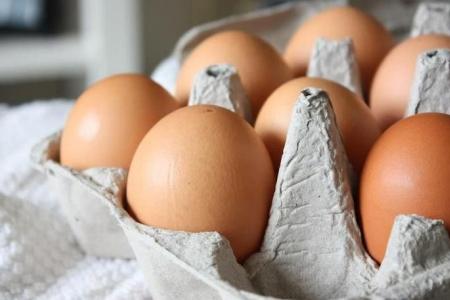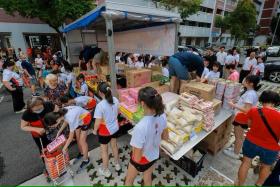Malaysians face egg-ache amid falling egg production
PETALING JAYA - The shortage of eggs continues to frustrate consumers in Malaysia.
Whatever is available in the market is usually snapped up, said industry players, and many are worried the situation will persist.
Mr Hong Chee Meng, president of the Federation of Sundry Goods Merchants Associations of Malaysia, said: “According to our members, the eggs are all snapped up within hours when they arrive at their designated outlets.”
He said the shortage was caused by poultry farms cutting down on production due to the increase in prices of maize and soybean meals – the two main ingredients for chicken feed.
Many residents are keeping a close watch on social media to follow the egg trails in their neighbourhood.
“We monitor Facebook community groups for ‘egg updates’. Once there is news of eggs restocked at a particular outlet, there will be a rush to queue up and get supplies,” said housewife Lim Ai Swam, 45, who lives in Batu Pahat, Johor.
Ms Lim, who needs 20 eggs weekly for her family, added that the shortage was unprecedented. “There should be enough eggs. This has never happened before.”
Klang Coast Sundry Goods Merchants’ Association president Tan Teck Hock said consumers have to resort to buying kampung eggs, although their supply has also dropped by 50 per cent.
On Oct 10, the Malaysian government announced it would maintain the ceiling prices of eggs. But poultry farmers have asked the government to deregulate egg prices to help them cope with the increase in feed costs.
The price control mechanism applies to Grade A, B and C eggs weighing between 59.9g and 65g. It does not cover “designer” eggs enriched with Omega-3 fatty acids and organically-produced or kampung eggs.
Federation of Livestock Farmers Associations of Malaysia’s deputy president Lee Yoon Yeau said that the situation would not improve unless the government allows egg prices to float.
“If the ringgit slides further against the US dollar in the near future, the imported feed raw material will become more expensive.
“This will lead to higher egg production costs, and farmers will be even more financially constrained.
“The situation will likely continue throughout next year,” he said. - THE STAR/ASIA NEWS NETWORK
Get The New Paper on your phone with the free TNP app. Download from the Apple App Store or Google Play Store now


